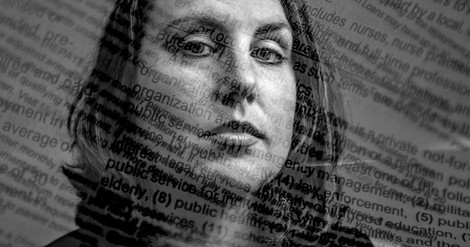Your podcast discovery platform
Curious minds select the most fascinating podcasts from around the world. Discover hand-piqd audio recommendations on your favorite topics.

piqer for: Global finds Deep Dives
Sarah Salvadore is an independent data and investigative journalist.
Salvadore spent the past year collaborating on a multimedia investigation for The New Yorker. She worked as a fellow at Columbia’s Global Migration Project - writing and publishing stories of impact on women and girls, migrating from Central America's Northern Triangle. She is a 2016 alumna of Columbia Journalism School, New York, graduating with an MS in Data Specialization and Gender Migration.
Salvadore was part of Columbia's first cohort specializing in data-driven journalism. She is interested in telling human interest stories, using latest tools in data collection, analysis and visualization.
She previously worked with the Times of India in Hyderabad and Kolkata.
The Incredible, Rage-Inducing Inside Story Of America’s Student Debt Machine
When the US government announced their flagship loan forgiveness program for college students, many across the country were relieved, as the program looked to ease off the financial burden. Leigh McIlvaine was thrilled to qualify for the Public Service Loan Forgiveness plan (PSLF). The program wasn’t a handout. It just meant that those who qualified for the program could pay off 91% of their original loan amount, while saving on interest. Those working public service jobs could have their debts forgiven after making 10-years’ worth of on-time payments. And McIlvaine was one of them.
For a while, everything was going smooth. The Education Department was handling loan repayments well. But they soon outsourced the work to private companies. One of them was FedLoan Servicing. Initially things were going fine, but soon McIlvaine was put in “administrative forbearance” – “an option usually reserved for people having difficulty making payments”. The company failed to put several of her loans on an income-based plan—so her payments briefly shot up, she says. When she brought up the issue, she was told it was an administrative oversight. Meanwhile, none of the payments she made during that period counted. As a result, her date of loan forgiveness was extended by a year. And McIlvaine is not alone. FedLoan has been accused of mismanaging PSLF, misleading borrowers and losing track of payments. The American Bar Association also filed a suit against the Education Department “for reneging on its own rules about how the program was supposed to work and who was eligible for forgiveness.”
Meanwhile, the Trump administration is looking at axing the PSLF program. Ryann Liebenthal takes a look at America's student debt crisis and how more scholars will be saddled by the yoke of debt.
